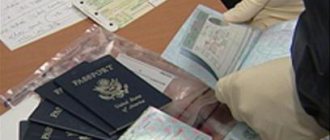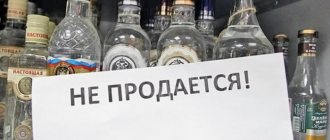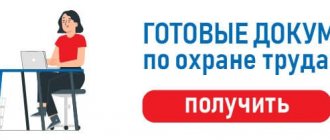How are customers deceived?
It is not possible to immediately distinguish a false insurer from a real one. First, callers have access to insurance coverage. The interlocutor knows everything about the client’s car, his driving record, accident rates, details of his current policy, and can calculate the cost of insurance. Users assume that such information is sold on the black market on the Internet. Secondly, scammers very accurately imitate the work of call centers: background noise, conversation using scripts. Thirdly, they will persistently remind you about safety. For example, they will offer to pay for the service after receiving the policy from the courier and checking the document on the website of the Russian Union of Auto Insurers. The policy number is real, it is listed in the RSA database. However, another car owner is insured under it.
conclusions
Insurance fraud is prosecuted under the laws of the Russian Federation. It is found in almost every market sector. It should be remembered that:
- A fraudster can be any of the subjects of the insurance business, including the policy owner, the policyholder, the beneficiary and the insurer.
- Scammers are often helped by third parties who are interested in receiving a portion of the profits. They are most often employees of a company, law enforcement agencies (traffic police, for example), lawyers (appraisers).
- If you realize that you are communicating with scammers, it is not recommended to agree to illegal conditions and schemes, so as not to become a victim or accomplice to a crime.
- Responsibility for insurance fraud includes not only fines, but also a real sentence of up to 10 years in prison under Art. 159 of the Criminal Code of the Russian Federation.
Do you have any questions? You can contact our online lawyer. Don't forget to indicate in the comments if you have had any cases of insurance fraud. Like and share information with your friends.
We are sure you will be interested in reading our article about fraud in the MTPL market.
What is the scale of the problem?
In comments to posts on social networks, many users complained that they had encountered similar fraud. The press service of the Bank of Russia confirmed the fact of such requests from citizens, calling them “single cases.” The Russian Union of Auto Insurers Banki.ru explained that it is not so easy to fake a policy; data from insurers about policyholders is required. When checking a document in the PCA database, the user sees the name of the insurance company and the validity period of the insurance contract. This information must match that indicated in the fake in order to mislead the buyer. They admitted that the problem of fraud with MTPL policies exists, but added: the conclusion about the widespread nature of this phenomenon does not correspond to reality.
How to avoid insurance fraud
No person is protected from deception. But the lawyer still gave advice on how to protect yourself from trouble. According to him, if there is a need to conclude an insurance contract, it is best to contact a trusted insurer. In addition, when drawing up an insurance contract, it is necessary to familiarize yourself in detail with the terms of insurance, as well as the correctness of filling out all documents. The low cost of insurance should definitely raise doubts. It is also necessary to pay attention to the insurance policy itself; all information specified there must be true.
However, if the deception could not be avoided, the specialist advised to contact the police for help. Now law enforcement agencies have a fairly extensive base of practices and methods for solving and investigating crimes in the insurance industry. In addition to the police, the security service of the insurance company itself, whose policy became the subject of a crime, must also be involved in the incident. Security officers also have extensive experience in solving such crimes and often provide significant assistance to law enforcement.
How to avoid becoming a victim of scammers?
The Bank of Russia recommends concluding a compulsory motor liability insurance agreement either electronically in your personal account on the official website of the insurer, or in the offices of insurance companies.
You can also apply for compulsory motor liability insurance through the financial supermarket Banki.ru. Experts also advise not to negotiate the purchase of a policy over the phone, especially if the interlocutor offers a discount. “An obvious factor in the spread of counterfeiting is the offer to purchase a “citizen car” at a discount of up to 50%. The current law does not provide for discounts for compulsory car insurance,” notes lawyer Daria Reshetilo.
To distinguish a real employee of an insurance company from a fraudster, you can ask him “control” questions, advise Ingosstrakh Insurance Company. For example, these:
- “You are an employee of an insurance company.
- “How did you get my personal data and on what basis do you use it?”
If you are not sure that you communicated with the insurer, call the company yourself. This recommendation also applies to conversations with people who introduce themselves as bank employees.
Crime patterns
What types of insurance scams are there? Our expert suggested considering several popular criminal schemes of our time:
• issuing an insurance policy retroactively after an accident. In this case, the conclusion of an agreement between an individual and an insurance company occurs after the accident, and it is fundamentally important that the date of the document be a date preceding the time and date of the accident. It is at this moment that the driver’s financial responsibility for the accident is transferred to the insurer (if we are talking about compulsory motor liability insurance) or the receipt of monetary compensation (insurance payment) for damage to the vehicle (CASCO is already involved here);
• driver replacement. Everything is simple here - the place of the driver who was at fault for the accident and who was behind the wheel at the time of the accident is taken by a completely different person. But the choice of a third party is not accidental - his data must be included in the insurance policy. The purpose of this deception is the same as the previous one - to receive money from the insurance company, deliberate damage to the car and its fictitious damage. In order to inflate the insurance payment after a minor accident, which is mandatory recorded by the European protocol or by traffic police officers, the car is deliberately damaged, as a result of which the amount of the insurance payment increases (often several times);
• staging an accident, fictitious accident. This option involves several attackers who act by prior agreement. The point is this: a whole, undamaged, usually expensive car (which will later be used by criminals as a victim) is insured in accordance with the procedure established by law. Then the swindlers, who have agreed to commit a crime, buy damaged parts from the exact same car at bargain prices at car dismantling yards and from private individuals (doors, fenders, etc.), and then install them on the car instead of whole ones. Then, in a pre-selected place and at a pre-agreed time, an accident is “staged” with a cheaper and, as a rule, already damaged car, after which it is registered and recorded as an accident that actually happened, where the victim is a more expensive car, indicating that the damage The body of the car was damaged precisely from this accident. After which they receive money from the insurance company. This pattern can be repeated several times with the same car.
• deception when drawing up insurance documents and other papers. According to the expert, nowadays “insurers” do not always comply with the law and, unfortunately, often resort to falsifying examination results. In them, they either exaggerate or, conversely, downplay the nature of the damage caused directly during the incident. Thus, the cost of insurance payments changes significantly, which means that not only insurance companies, which will have to pay huge sums, may suffer, but also individuals themselves who have received less payments.
pixabay.com/
How to check your MTPL policy?
You can find out whether your policy is genuine on the website of the Russian Union of Auto Insurers. Verification is available for both paper and electronic forms. All you need to do is enter the series and policy number in the form. But the information received may not be enough if the scammers used real forms. It is worth further studying which car is indicated in the document by filling out another form. After confirming the security code, information about the insured vehicle will be displayed on the screen: license plate number and VIN code. The second verification channel is the website or call center of the insurance company. There you can also get information about the agent who sold the policy and the validity of the agency agreement. Finally, nothing prevents you from checking your MTPL policy using a smartphone, the Bank of Russia recalled. For more than a year now, such documents have had a QR code in the upper right corner. You can read the QR code using a special application on your smartphone. It will show the name of the insurance company, policy number, date of issue and expiration date. It is imperative to compare data on the make, model, VIN code and license plate number of the car.
Legal basis
Insurance activities in Russia are regulated by the law “On the organization of insurance business in the Russian Federation” dated November 27, 1992 No. 4015-1. Persons who intentionally violate the provisions of a legislative act are liable under Art. 159 of the Criminal Code of the Russian Federation, which provides not only fines, but also imprisonment for up to 10 years.
Certain types of insurance services are regulated by specific legislative acts, including the following laws:
- “On compulsory civil liability insurance of vehicle owners” dated April 25, 2002 No. 40-FZ - OSAGO policies.
- “On compulsory health insurance” dated November 29, 2010 No. 326-FZ - compulsory medical insurance.
- “On mortgage (real estate pledge)” dated July 16, 1998 No. 102-FZ
Attempts to break the law promise trouble for scammers, from a fine to imprisonment.
THIS IS INTERESTING! In addition to the Criminal Code of the Russian Federation, the Code of Administrative Offenses specifies other types of liability for violations of the law. In Art. 12.37 of the Code of Administrative Offenses of the Russian Federation specifies the types of fines for driving a vehicle without compulsory motor liability insurance. Lack of insurance for new vehicle owners is not 100% a type of fraud. However, some clients use fake policies to avoid a fine, and this is a criminal act that already falls not only under Art. 12.37 Code of Administrative Offences.
My MTPL policy is fake. What to do?
Unfortunately, the insurance company will not help you - it is not responsible for such situations. The RSA recommends contacting law enforcement agencies to report fraud. In addition, you will have to buy new insurance. The holder of a fake policy cannot count on receiving insurance compensation, recalls Law & Com Offer partner Victoria Solovyova. And if he is found guilty of an accident, he will be forced to compensate the victim at his own expense. If the fact of falsification of the policy is discovered by a traffic police inspector, the car owner faces an administrative fine in the amount of 800 rubles.
The essence of insurance fraud
Insurance fraud is common. Both individuals who have entered into an agreement at the insurer’s office and companies can meet face to face with scammers.
The essence of insurance fraud is the fraudulent appropriation of payments, premiums and material compensation under the insurance contract. Subjects of insurance fraud can be:
- Clients – policyholder, insured person and/or beneficiary.
- The insurer is a legal entity.
- The third party is interested parties. Brokers, acquaintances of the “victims”, law enforcement officers, witnesses of the insured event.
Insurance fraud can occur in and out of the office. It most often occurs at the stage of receiving compensation, for example, when trying to inflate the amount of damage in order to obtain the maximum amount of insurance coverage.
How else are MTPL policies counterfeited?
Fraudsters are becoming more and more creative, says lawyer Daria Reshetilo. There are at least five types of fictitious policies:
- policy with changes. It, for example, changes the start or end date of the validity period;
- double polis. Series, number, seals, “registration” to the insurance company - everything is valid, but one contract has two owners at the same time;
- re-sold policy. After its validity period expires in one region, it may emerge in another or the same region as absolutely “clean”;
- fake form. A real "linden". In this case, the number may coincide with the actual policy number shipped to any insurance company in any region;
- a policy of an insurer that has left the market, issued after its exit from the MTPL system. By law, such forms must be withdrawn from circulation and sent back to the RSA, but, as practice shows, they linger on the market for a long time.
URGENTLY!
Hurry up to understand FSBU 5/2019 “Inventories” before you are fined . The easiest way is a short but complete advanced training course from accounting guru Sergei Vereshchagin
- Duration 25 hours for 1 month
- Your ID in the Rosobrnadzor register (FIS FRDO)
- We issue a certificate of advanced training
- The course complies with the professional standard “Accountant”
View full program
Liability for fraud
If the Bank of Russia suspects an insurance company of fraud, it may lose its license. The rehabilitation period for a legal entity can range from 6 to 24 months, depending on the frequency of cases and reputation in the market. In this case, management faces a fine, as do managers who took an active part in dubious schemes.
The responsibility of citizens for fraud, including in the insurance sector, is spelled out in Art. 159 of the Criminal Code of the Russian Federation. For policy owners who tried to deceive the insurer and managers of companies with a dubious reputation, the court may order:
- Fine up to 120,000 rubles, compulsory labor for up to 360 hours, or correctional labor for up to 1 year, restriction of freedom or forced labor for up to 2 years, arrest for up to 4 months or imprisonment for up to 2 years.
- A fine of up to 300,000 rubles, compulsory labor for up to 480 hours, or correctional labor for up to 2 years, forced labor for up to 5 years, or imprisonment for the same period, if the act was committed by a group of persons by prior conspiracy.
Other penalties, including for persons using their official position, are prescribed in Art. 159 of the Criminal Code of the Russian Federation.
How to prove you're right
If you find yourself in such a situation, it is very important to remain calm and not give in to the persuasion of scammers. Calling the traffic police to the scene of the incident is mandatory, and this must be done from your phone. Recently, scammers have been actively using fake IDs and uniforms, so it is also necessary to write down the numbers of the arriving patrol car and the names of the employees. You should not be afraid of physical harm; as a last resort, you should lock yourself in your car and call the police by phone.
Important!
Under no circumstances should you leave the scene of the accident or pull over to the side of the road. Leaving the scene of an accident implies liability under Part 2 of Article 12.27 of the Code of Administrative Offenses of the Russian Federation, so you must wait for the police to arrive without moving the car. You can spend your waiting time usefully - try to find witnesses to the accident. These could be passers-by, drivers of neighboring cars, passengers
The main goal of the bandits is to convince the driver of the need for expensive repairs to their car. Under no circumstances should you succumb to persuasion and give cash or leave the scene of the accident before the arrival of traffic police officers. It is helpful to have the contact information of a trusted legal professional with you. Calling such a person will help you stay calm and formulate the right course of action.
Existing anti-fraud options
In fact, today it is possible to detect the deception of fraudsters in MTPL insurance using several methods and apply appropriate measures.
Options for dealing with scammers:
- Creation of a unified PCA database that reflects information on sold contracts and insurance payments.
- Checking online sites for MTPL sales and blocking those that operate illegally.
- Notifying people via television or radio. Often on the news or in specialized programs they talk about fraud with electronic compulsory motor liability insurance. This allows you to increase the financial literacy of motorists.
Selling e-OSAGO offline
With this scheme, you open a separate office in which you register email. insurance and take payment for it from the client. In other words, a person comes to your office who has not contacted a professional broker and cannot figure out how to purchase e-MTPL on their own. You register it on the insurance company’s website, purchase a policy for it and for this you take a “commission” in the amount of 500-1000 rubles.
What is the violation and what is the threat?
Only official partners of an insurance company who have entered into an agency agreement with it can sell MTPL policies. (If you apply for a motor vehicle license on our website, we conclude an agency agreement for you). In this case, the agent receives a commission not from the client, but from the company itself - it is included in the cost of the policy.
Of course, an “entrepreneur” using such a scheme can always say that he was not selling a policy, but a service for registering on the company’s website, consulting services, etc. However, such activities always entail additional violations. For example, in offices they do not install cash registers (CCMs) and do not connect online cash registers, because this is quite expensive and complicated. And for this there is already a fine of 10 thousand rubles for the head of the company and 30 thousand for the organization itself.
Provocation of road accidents - schemes of fake accidents
In the above cases, the driver is somehow involved in illegal schemes. However, there are entire criminal groups whose victims can be any law-abiding driver. This type of fraud is widespread, and scammers' profits amount to millions of rubles. The goal is to deliberately provoke the intended victim and then extort money.
It is difficult to recognize scammers; several cars are involved in the staging, and they often resort to the help of unscrupulous traffic police officers and insurance companies. The following situations can be considered signs of auto-fraud:
- Persistent requests to give way to a car moving behind; the accomplices' car is moving on the right. As soon as the driver begins the lane change maneuver, the car is suddenly exposed to impact;
- Unreasonable sudden braking of the vehicle in front;
- The presence of witnesses telling deliberate lies;
- Insistent demands of the “victims” to resolve the issue on the spot, without involving traffic police officers.
Legal consultation
Get qualified help right now! Our lawyers will advise you on any issues out of turn!
To get a consultation
Overly emotional or aggressive behavior of the “victims” should also alert the driver. Most often, the damage to the scammers' car is minimal, but they try to convince the victim otherwise.








